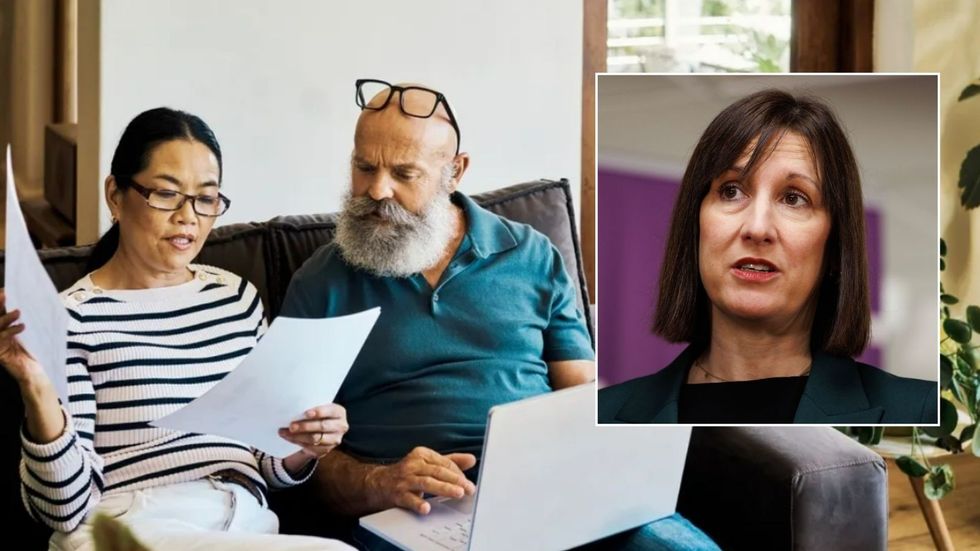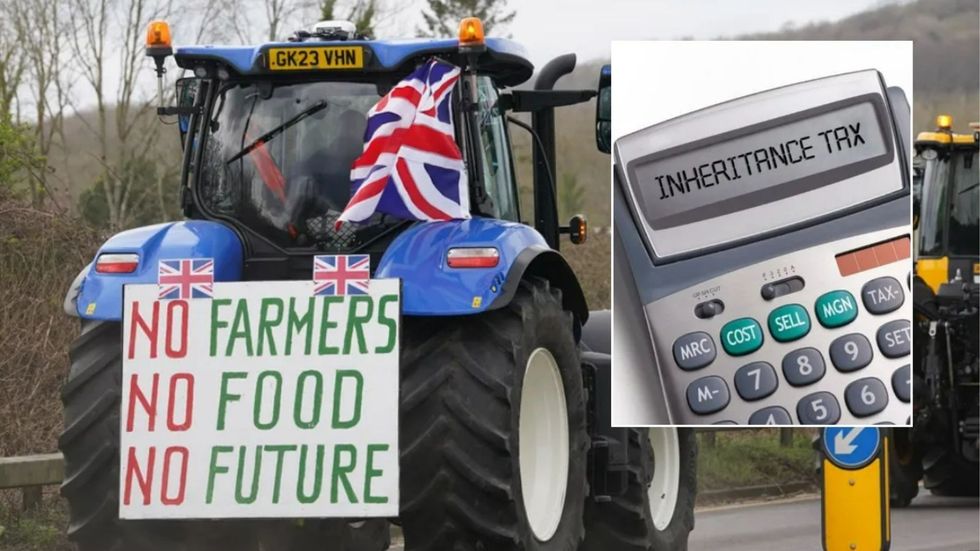Inheritance tax alert: Britons warned Budget change that has 'gone under the radar' could drag you into paying levy
Inheritance tax (IHT) receipts have hit £6.3bn for the first three quarters of the 2024/25 financial year
Don't Miss
Most Read
Trending on GB News
A Budget change, that has "gone under the radar", will see thousands more people paying inheritance tax in the coming years, an expert has warned.
Rachel Reeves announced three changes in the Budget - in a bid fill the black hole in the public's finances.
Rachel Steeden, head of legal at Stewardship explained to GB News that the first change will affect farmers or business owner as there have been some limitations to agricultural property relief and business property relief, coming into affect from April 2026.
The second change will affect many more people as unspent pension pots will come into the scope of inheritance tax from April 2027. An extra 153,000 estates are expected to be caught out by the levy being expanded to pensions by 2030, according to the OBR.
But the third change that has "gone under the radar," the expert explained, which will drag even more people into paying inheritance tax.
Steeden said: "The third change has gone under the radar a bit, but is also very important.

An extra 153,000 estates are expected to be caught out by the levy being expanded to pensions by 2030, according to the OBR
GETTY
"You've got a nil rate band of £325,000, and it's been that way since 2009. And the Government has now extended the freeze of that threshold to 2030.
"To put that in context, £325,000 in 2009 is worth about £500,000 now. And by 2030, obviously it'll be worth even more - this is what's called fiscal drag.
"More estates are dragged into inheritance tax by an allowance just being frozen, but that it doesn't look like a headline change in the same way, but it is significant. It will be difficult."
LATEST DEVELOPMENTS:
With inflation and rising property values, the real value of this threshold has significantly eroded over time, meaning more estates will exceed the NRB and become liable for inheritance tax.
Currently, just over four per cent of estates - about 27,800 a year - pay inheritance tax.
Justin Moy, managing director at EHF Mortgages, said: "It's inevitable that more estates will face IHT liability in coming months and years.
"When you factor other assets such as pension pots soon to be included in estates for tax purposes, there will definitely be more people paying inheritance tax in the near future."
The pension reform will result in an additional 1.5 per cent of UK deaths becoming liable for IHT. The measure is expected to affect 10,500 estates with inheritable pension wealth in the 2027-28 tax year. A further 38,500 estates will face additional IHT charges due to the new rules.
These estates will see an average increase of £34,000 in inheritance tax payments when pension assets are included in estate valuations.
Currently, estates may be liable for inheritance tax at 40 per cent if they exceed the nil-rate band of £325,000, however there is additional support for those leaving homes to direct descendants through the residence nil-rate band (RNRB).
The RNRB provides an extra £175,000 allowance. Married couples and those in civil partnerships can combine these allowances with their spouse. This means couples could potentially pass on up to £1 million free from inheritance tax when the second partner dies.
 Following the Budget, valuable inheritance tax reliefs for agricultural and business assets will be removedGETTY
Following the Budget, valuable inheritance tax reliefs for agricultural and business assets will be removedGETTYAs more people seek ways to reduce their tax liability after recent Budget changes, families are also reminded of a gifting option which is inheritance tax free.
Charitable donations can also reduce the value of an estate to below the £325,000 tax-free threshold, potentially eliminating inheritance tax liability entirely while benefiting good causes.
Another key incentive for charitable giving is the reduced inheritance tax rate of 36 per cent. Britons who who leave at least 10 per cent of their taxable estate to charity can see a four per cent reduction to the rest of their estate.
This reduction from the standard 40 per cent rate provides an additional benefit for families considering philanthropic activities alongside providing for their heirs.







